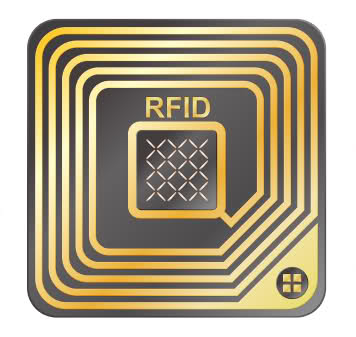
“Should I Consider Using RFID or Bar Codes for Inventory Control?”
RFID, or Radio Frequency Identification, is a method of using radio waves to transfer data from an electronic tag. The tag is generally attached to an object to identify/track that object through the order to cash process. Tiny microchips exist within the tag and transmit information to a scanner which distinguishes that specific item from all others. A good example of this would be an EZPass. The EZPass uses RFID to transfer the electronically stored identification information about the vehicle to the receiver. As glamorous as RFID sounds, there are pros and cons that go along with it.
RFID is a more efficient way to identify and track products as they move through the supply chain. Because all the product information is stored electronically, your business process becomes a lot simpler. You will start to see reduced labor costs, increased performance, decreased costs of equipment and tags, and product tracking that is way more accurate. Processes that were once manual, like shipping/receiving and ordering, become automated. You will always have a good grasp on your asset management and knowledge of current inventory because each product will always be accounted for. Gone are the days of assuming where in the supply chain your materials are. Now pallets are tagged by the case to easily identify them. You can replace assumption with knowledge. You will know where a product is, how much is available, and how much it is sold for, with minimal human contact. The most important factor of RFID is the fact that it can reduce stockouts. Because of the above suggestions, RFID can keep such good track of your items that your stock measurements will be near 100% accurate. A good example of this is Wal-Mart. When Wal-Mart started using an RFID process, they reduced their stockouts by 30%. Just remember, you will need to experiment with RFID to see how it will work for your business specifically.
Although RFID can seem like the answer to all your problems, it may not be the best solution for your business. First off, it is very expensive. Some people even view it as an invasion of privacy, wondering how much information is too much information. What legal action is taken against the loss of privacy through RFID technology? Unless there is a visible label claiming that the item is RFID tagged, especially with consumer goods like clothing, people are going to be cautious that RFID is impinging on their freedom. On top of this, scanning is somewhat difficult and tags and scanners need to have the same compatibility. If you want your products tagged, they need to be tagged at the source, have a visible tag on them, and need to be scanned properly each time.
Future Questions you will be asking:
- How often do you sample
- How much of your stock should you verify?
- How much data will you need from start to end?
- What is the level of granularity?
- Does the ROI outweigh the effort put into RFID?

